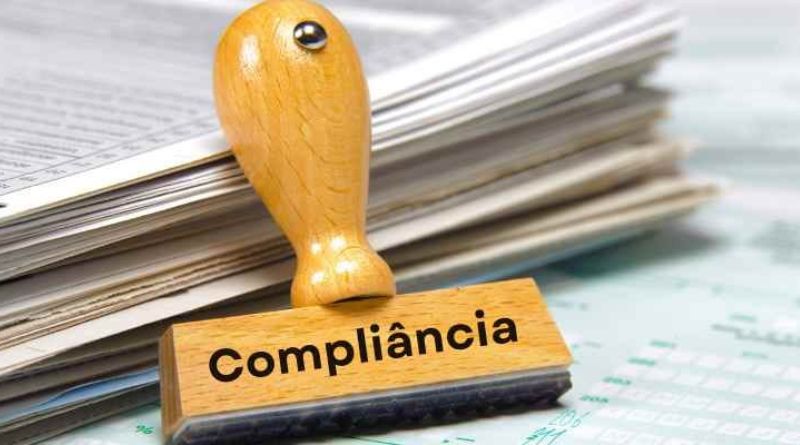Compliância: The Essential Guide to Navigating Today’s Complex Business Environment
In the ever-evolving landscape of modern business, ‘compliância‘ stands as a critical pillar. It’s not just about adhering to laws and regulations; it’s about cultivating a culture of integrity and foresight. In this comprehensive guide, we delve into what compliância entails, its significance, and how businesses can effectively implement and measure its success.
What is Compliância?
Compliância, at its core, is about conforming to a set of prescribed rules, regulations, standards, and ethical practices. It transcends mere legal adherence, enveloping a broad spectrum of activities including operational procedures, ethical decision-making, and risk management.
Why is Compliância Important?
The importance of compliância cannot be overstated. It’s the backbone that supports legal integrity, ethical operations, and risk mitigation. Compliance safeguards a company’s reputation and ensures long-term sustainability by avoiding legal repercussions and fostering trust among stakeholders.
Key Aspects of Compliância
Compliância is multifaceted, encompassing:
- Legal and Regulatory Compliance: This involves adherence to laws and regulations specific to the business domain.
- Ethical Standards: It’s about doing the right thing, maintaining honesty, and integrity in business conduct.
- Risk Management: Identifying and managing potential risks to prevent detrimental impacts on the organization.
- Data Privacy and Security: Ensuring sensitive information is protected against unauthorized access and breaches.
Implementing an Effective Compliância Program
Developing a robust compliância program is a multi-step process:
- Assess Compliance Vulnerabilities: Identify where the organization is most at risk.
- Develop Policies and Procedures: Establish clear, comprehensive guidelines.
- Provide Training: Educate employees on compliance importance and practices.
- Monitor and Audit Compliance: Regularly review the effectiveness of compliance measures.
- Enable Confidential Reporting: Set up a system for employees to report compliance issues anonymously.
- Enforce through Discipline: Implement strict measures for non-compliance.
- Continually Review and Improve: Regularly update compliance strategies to stay current.
Measuring Compliância Success
The effectiveness of compliância can be gauged through:
- Leading Indicators: Proactive measures like training completion rates.
- Lagging Indicators: Reactive metrics such as the number of compliance violations.
- Qualitative Measures: Assessing employee engagement and understanding of compliance.
Common Compliância Challenges
Organizations often grapple with:
- Complex Regulations: Keeping pace with intricate and evolving legal requirements.
- Resource Constraints: Balancing robust compliance against budget limitations.
- Keeping Current: Staying informed about the latest in compliance trends and regulations.
Leveraging Technology for Compliância
Technology is revolutionizing compliância through:
- Compliance Software: Automating and simplifying compliance processes.
- Data Analytics: Offering insights for proactive compliance management.
- Automation: Reducing manual workload in routine compliance tasks.
The Future of Compliância
The compliância landscape is expected to evolve with:
- AI and Machine Learning: Enhancing predictive analytics in compliance.
- Increased Enforcement and Penalties: Reflecting a tougher regulatory environment.
- Greater International Coordination: Addressing the global nature of modern businesses.
Conclusion
In conclusion, compliância is an indispensable component of contemporary business. Its effective implementation and management not only ensure legal and ethical operation but also contribute significantly to an organization’s reputation and sustainability
FAQS
What are the key components of an effective compliância program?
An effective compliância program includes assessing risks, developing and enforcing policies, employee training, monitoring and auditing, confidential reporting mechanisms, and continuous improvement to adapt to new challenges.
How does compliância impact a business’s reputation?
Strong compliância practices build trust with customers, partners, and regulators, enhancing the company’s reputation. Conversely, non-compliance can lead to scandals, legal troubles, and a damaged public image.
Can technology fully automate a company’s compliância processes?
While technology like compliance software and AI can streamline and improve efficiency, complete automation is impractical. Human oversight remains crucial for decision-making, ethical considerations, and handling complex compliance situations.
What role do employees play in ensuring compliância?
Employees are crucial in implementing compliância. Their understanding, engagement, and adherence to compliance policies and procedures are vital for minimizing risks and maintaining the integrity of the organization.
Is compliância only important for large corporations?
Compliância is critical for businesses of all sizes. Small and medium enterprises also face legal, ethical, and operational risks, and effective compliância can prevent costly legal issues and support sustainable growth.




